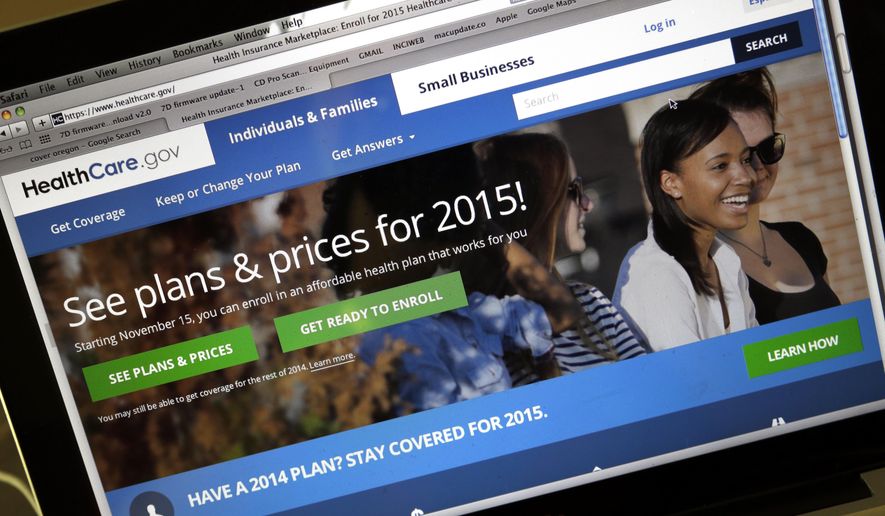Obamacare’s “Cadillac tax” will hit one in four employers that offer health care benefits, a leading industry analyst says in a report being released Tuesday, socking companies with a massive levy that Republicans and Democrats on Capitol Hill say is unfair to those who have negotiated high-quality plans as part of their jobs.
The Kaiser Family Foundation estimates that 26 percent of companies will be affected by the tax when it takes effect in 2018 and 42 percent of employers will be paying the levy a decade later, signaling just how quickly health care costs are expected to rise — and how valuable the Cadillac plans are.
Kaiser said some employers probably will cut back on the scope of their plans to duck the tax, resulting in coverage with higher deductibles or networks with fewer doctors.
“For the most part, these changes will result in employees paying for a greater share of their health care out-of-pocket,” the study authors wrote.
The tax has been controversial from the beginning, when Democrats included it in the Affordable Care Act as a way to wring billions of dollars out of the health care market and use that money to pay for other benefits in Obamacare.
Formally known as the high-cost plan tax, the provision is a 40 percent excise on the cost of health care coverage above $10,200 for an individual and $27,500 for a family, although those amounts could change when the government issues final regulations for 2018 and as it indexes the thresholds for inflation in later years.
The tax is expected to collect a staggering $87 billion from 2016 through 2025.
The health care law requires the “coverage provider” to pay the tax. That means insurers pay for fully covered plans and the employers themselves for self-insured plans.
“As a practical matter, the insurer will try to get the employer to pay the tax, and the employer will try to pass it on to employees,” said Timothy Jost, a law professor at Washington and Lee University who closely tracks the health care law. “Moreover, employers are likely to eliminate benefits that would be subject to the tax, most likely by increasing employee cost sharing, which is essentially shifting costs to employees.”
Some economists defend the tax by saying the high-value plans end up paying for more care than needed, driving up health care costs for everyone.
Labor unions, which generally back Democrats, have balked at the tax. They say they often negotiate for better health care plans instead of higher wages and now will have to grapple with benefit cuts because of government pressure.
“Even though the tax won’t go into effect until 2018, employers already are slashing benefits in anticipation of it, forcing millions of families to become seriously underinsured. This is possibly the ACA’s most dangerous trend,” said an op-ed this month in The Hill newspaper written by three union presidents: Randi Weingarten of the American Federation of Teachers, Lee Saunders of the American Federation of State, County and Municipal Employees, and D. Taylor of the hospitality workers union Unite Here.
A group known as the Alliance to Fight the 40 kicked off a letter-writing campaign Friday to whip up congressional support for bills introduced by Rep. Frank C. Guinta, New Hampshire Republican, and Rep. Joe Courtney, a Connecticut Democrat who says the tax will disproportionately affect older workers, women and people who live in high-cost areas in the Northeast.
“The tax must be repealed. If Congress waits, it will be too late,” wrote the alliance, which bills itself as a coalition of private- and public-sector employees.
The fight has created common ground between unions and Republicans on Capitol Hill who have been eager to dent the health care act, which President Obama has managed to keep relatively intact over the past five years.
“Keep in mind that Republicans by and large believe the president’s health law should be repealed in its entirety, and that includes Obamacare’s ‘Cadillac tax,’” said Julia Lawless, a spokeswoman for Senate Finance Committee Chairman Orrin G. Hatch, Utah Republican. “It’s a misguided provision that creates a draconian policy that will hit countless Americans with a 40 percent excise tax.”
Mindful of economists’ warnings about the overuse of health care, Mr. Hatch, Sen. Richard Burr of North Carolina and Rep. Fred Upton of Michigan offered a Republican alternative to Obamacare in February that caps the tax exclusion of job-based health insurance at $12,000 for an individual and $30,000 for a family.
“Unlike the punitive Cadillac Plan Tax in current law which imposes an onerous excise tax of 40 percent on cost of coverage of health plans that exceed the annual limit, our proposal treats every additional dollar after the generous threshold at the individual’s tax rate — a more balanced approach for middle class Americans,” their blueprint says.
The tax could bleed into the presidential race next year.
Hillary Rodham Clinton, the Democratic front-runner, told a top labor union that she is looking into the law.
“As currently structured, I worry that it may create an incentive to substantially lower the value of the benefits package and shift more and more costs to consumers,” she said in a questionnaire submitted to the American Federation of Teachers, which has endorsed Mrs. Clinton’s bid.
For now, Kaiser says, employers are scrambling to adjust to the levy on the books. The tax rate of 40 percent is relatively high to what employees would pay if the benefits were taxed like regular compensation, and the employers cannot deduct the tax payments as “a cost of doing business.”
“The amount and structure of the [tax] provide a strong incentive for employers to avoid hitting the thresholds,” Kaiser said.
• Tom Howell Jr. can be reached at thowell@washingtontimes.com.




Please read our comment policy before commenting.